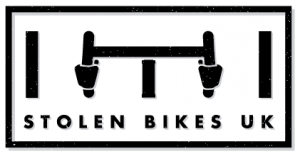 Stolen Bikes UK (and FindThatBike/CheckThatBike) were setup when I had my own bike stolen as a hobby primarily aimed at getting my own bike back. It morphed into this project that has I think achieved it’s goals in hitting bike thieves where it hurts and helping spur innovation in bicycle registers. It’s now been over 10 years and the services has grown to: 55,927 stolen bikes listed and 2,603 recorded as recovered 5.4 million CheckThatBike queries to registers we supported on the service, resulting in 218,968 frame numbers flagged 2.6 million emails sent every year 60,000 likes/follows on social media Too many media requests to count All big numbers no doubt but unfortunately it comes at an operational cost that is no longer self sustained by advertising, add to that a need to focus elsewhere, a lack of time and an increase in effort required to keep the service running smoothly and it’s no longer a project that takes the priority it should. To that end I will be looking at finding a home for both Stolen Bikes UK, Find That Bike and our social media accounts (interested email: john@stolen-bikes.co.uk). This will obviously have to be done in a way mindful of peoples privacy rights and should it end in a transfer of data I will reach out to those affected with an opt-in email. I will continue to watch this space, I still stand by my premise that Check That Bike! should have been the service that changed how UK handled theft by making it incredibly simple (and free) to check unique frame numbers against any number of databases (be they government or private)....
Stolen Bikes UK (and FindThatBike/CheckThatBike) were setup when I had my own bike stolen as a hobby primarily aimed at getting my own bike back. It morphed into this project that has I think achieved it’s goals in hitting bike thieves where it hurts and helping spur innovation in bicycle registers. It’s now been over 10 years and the services has grown to: 55,927 stolen bikes listed and 2,603 recorded as recovered 5.4 million CheckThatBike queries to registers we supported on the service, resulting in 218,968 frame numbers flagged 2.6 million emails sent every year 60,000 likes/follows on social media Too many media requests to count All big numbers no doubt but unfortunately it comes at an operational cost that is no longer self sustained by advertising, add to that a need to focus elsewhere, a lack of time and an increase in effort required to keep the service running smoothly and it’s no longer a project that takes the priority it should. To that end I will be looking at finding a home for both Stolen Bikes UK, Find That Bike and our social media accounts (interested email: john@stolen-bikes.co.uk). This will obviously have to be done in a way mindful of peoples privacy rights and should it end in a transfer of data I will reach out to those affected with an opt-in email. I will continue to watch this space, I still stand by my premise that Check That Bike! should have been the service that changed how UK handled theft by making it incredibly simple (and free) to check unique frame numbers against any number of databases (be they government or private)....
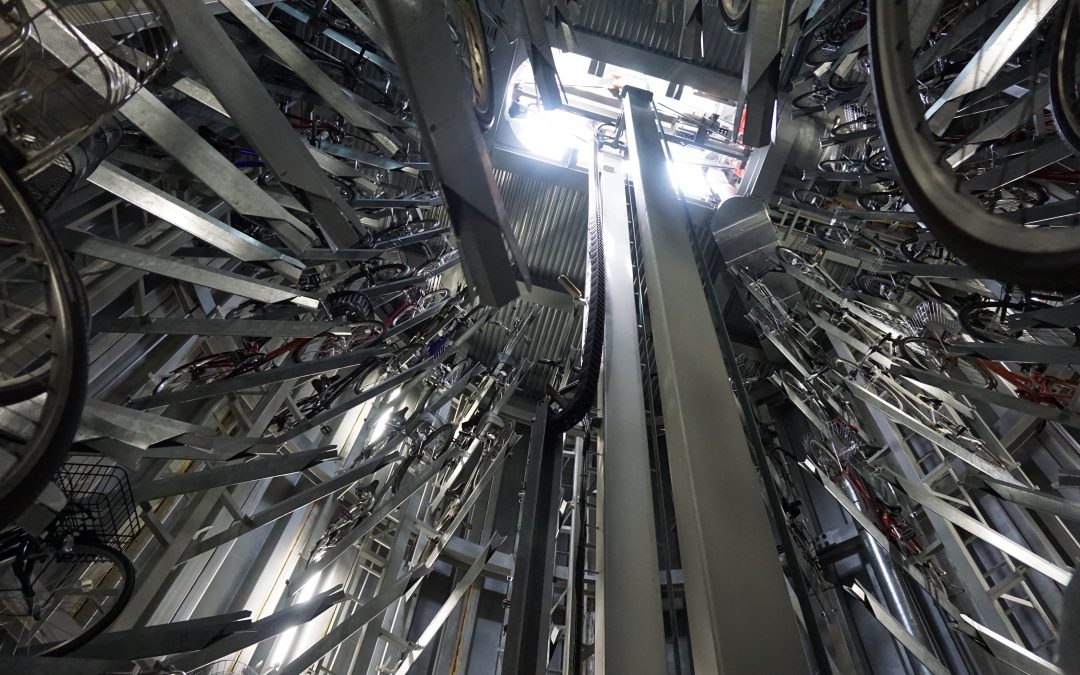 Cycling has unmistakably taken off in the UK, fuelled by many catalysts. In London it was cemented by Boris Johnson’s Cycling Vision 2020, which aimed to double the number of journeys made by bike each day, bringing huge health and lifestyle benefits, not just to cyclists but – thanks to reduced emissions, less traffic and greener public spaces – to every London resident and visitor. The Vision is working, as in March 2016 TFL stated, “In zone 1, during the morning rush hour, 32% of all vehicles on the roads are now bicycles” and they anticipate that the number of commuters by bike “will overtake the number commuting by car in three years”. This is a massive shift toward pedal power, yet we’ve only just started, for in Amsterdam and The Hague up to 70% of all journeys are by bike. So where will all these new cyclists park? Cycle parking is space hungry: a problem to local authorities that try to de-clutter streets and improve the public realm. A few token Sheffield-type stands may be installed but these do nothing to deter theft. The ONS recorded 327,000 bike thefts in the UK from April 2015 to March 2016. So who’s providing cycle parking? Each planning authority sets the ratio of bikes required within new buildings. In central London the London Plan requires 1 cycle space per 90 sq m for office premises whereas in Cambridge three times as many spaces must be installed. The London Plan’s parking ratio equates to around 13% of occupants in new office buildings having access to a space, therefore London could never grow...
Cycling has unmistakably taken off in the UK, fuelled by many catalysts. In London it was cemented by Boris Johnson’s Cycling Vision 2020, which aimed to double the number of journeys made by bike each day, bringing huge health and lifestyle benefits, not just to cyclists but – thanks to reduced emissions, less traffic and greener public spaces – to every London resident and visitor. The Vision is working, as in March 2016 TFL stated, “In zone 1, during the morning rush hour, 32% of all vehicles on the roads are now bicycles” and they anticipate that the number of commuters by bike “will overtake the number commuting by car in three years”. This is a massive shift toward pedal power, yet we’ve only just started, for in Amsterdam and The Hague up to 70% of all journeys are by bike. So where will all these new cyclists park? Cycle parking is space hungry: a problem to local authorities that try to de-clutter streets and improve the public realm. A few token Sheffield-type stands may be installed but these do nothing to deter theft. The ONS recorded 327,000 bike thefts in the UK from April 2015 to March 2016. So who’s providing cycle parking? Each planning authority sets the ratio of bikes required within new buildings. In central London the London Plan requires 1 cycle space per 90 sq m for office premises whereas in Cambridge three times as many spaces must be installed. The London Plan’s parking ratio equates to around 13% of occupants in new office buildings having access to a space, therefore London could never grow...
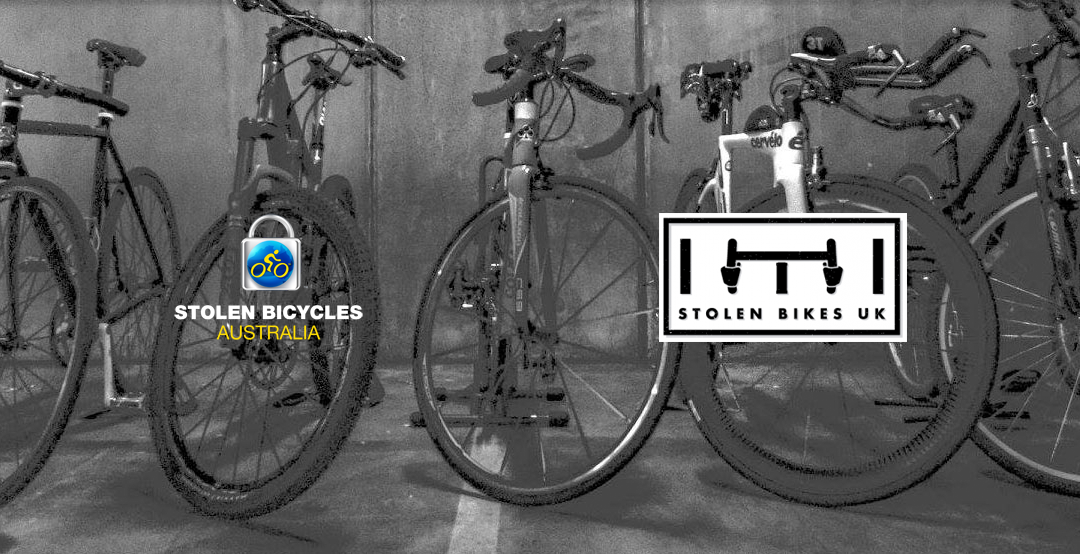 Alliance formed between Stolen Bicycles Australia and Stolen Bikes UK. Stolen Bicycles Australia Ltd is a not for profit organisation founded by a passionate bike rider and a former cop (Detective) from Australia. Brad the founder started Stolen Bicycles Australia late last year (2015) on Facebook upon seeing the countless number of victims posting their bikes on social media asking for community help to find their bikes. Brad knew he could offer some guidance from his years of policing experience and assist a few to recover their bikes. He first started a Facebook closed group inviting 10 victims to join the page on the promise/hope he could assist a few. In a short space of time the group began to grow as more victims unfortunately but fortunately came on board. Brad, ‘Part of the function of SBA is victim support as well as assistance with helping to find the victims bike, what to do when it is found and when needed liaising with Police. It is good to have a group of people whom have experienced the same issue huddled in the one place. I am very big on making sure every victim is treated equally on the page. I don’t care how expensive a bike is or how much or little the victim did to prevent the theft. I have always believed in the philosophy no one has the right to take what is not theirs and regardless of how long it has been missing ownership never passes’. Shortly after starting the initiative, SBA was met with success recovering a few bikes. Success breeds more success and inspires others to join and an in a short space the SBA group has now grown to 4,500...
Alliance formed between Stolen Bicycles Australia and Stolen Bikes UK. Stolen Bicycles Australia Ltd is a not for profit organisation founded by a passionate bike rider and a former cop (Detective) from Australia. Brad the founder started Stolen Bicycles Australia late last year (2015) on Facebook upon seeing the countless number of victims posting their bikes on social media asking for community help to find their bikes. Brad knew he could offer some guidance from his years of policing experience and assist a few to recover their bikes. He first started a Facebook closed group inviting 10 victims to join the page on the promise/hope he could assist a few. In a short space of time the group began to grow as more victims unfortunately but fortunately came on board. Brad, ‘Part of the function of SBA is victim support as well as assistance with helping to find the victims bike, what to do when it is found and when needed liaising with Police. It is good to have a group of people whom have experienced the same issue huddled in the one place. I am very big on making sure every victim is treated equally on the page. I don’t care how expensive a bike is or how much or little the victim did to prevent the theft. I have always believed in the philosophy no one has the right to take what is not theirs and regardless of how long it has been missing ownership never passes’. Shortly after starting the initiative, SBA was met with success recovering a few bikes. Success breeds more success and inspires others to join and an in a short space the SBA group has now grown to 4,500...
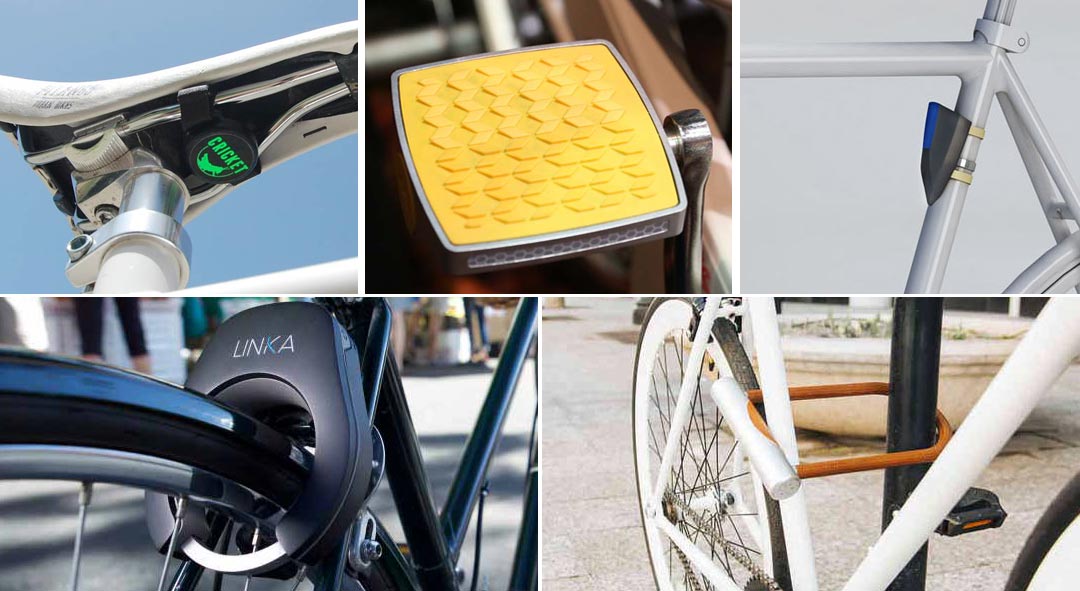 It is a known fact that bicycle theft is a huge problem. According to the Cyclists’ Touring Club, 381,000 bikes were stolen from April 2014-March 2015 in England and Wales. However, bicycle locks have mostly stayed the same. Until now. In recent years, several start-ups around the world have proposed a paradigm shift: intelligence, not force, is the key to keeping your bike safe. We are witnessing a trend in cycling: smart locks, ranging from Bluetooth-enabled U-locks to small, silent alarms, are beginning to chance the way we think about bicycle security. Today, we’ll analyse five of these intelligent solutions. They are not the only ones on the market, but each represents a different approach on stopping bicycle theft. 1. Noke At first glance, Noke looks like your average U-lock. Except for the beautiful design, of course, which you probably won’t find in any other U-lock. However, there’s more than meets the eye. Noke is Bluetooth-enabled and has a sound alarm. This means that whenever someone tries to steal your bike, the loud alarm will be triggered, and you will be notified on your smartphone. In addition to this, it also has some nice features. You can share access with your friends using the mobile app. Moreover, you can revoke access without needing to track down keys. The Noke was built to withstand harsh weather conditions. All its buttons, sensors and batteries are stored internally and protected with silicon rings. Pros: Strong and durable, has a steel alloy housing Has a loud alarm to deter thieves Easily share access to your bike Five years standard battery life, 6 months with...
It is a known fact that bicycle theft is a huge problem. According to the Cyclists’ Touring Club, 381,000 bikes were stolen from April 2014-March 2015 in England and Wales. However, bicycle locks have mostly stayed the same. Until now. In recent years, several start-ups around the world have proposed a paradigm shift: intelligence, not force, is the key to keeping your bike safe. We are witnessing a trend in cycling: smart locks, ranging from Bluetooth-enabled U-locks to small, silent alarms, are beginning to chance the way we think about bicycle security. Today, we’ll analyse five of these intelligent solutions. They are not the only ones on the market, but each represents a different approach on stopping bicycle theft. 1. Noke At first glance, Noke looks like your average U-lock. Except for the beautiful design, of course, which you probably won’t find in any other U-lock. However, there’s more than meets the eye. Noke is Bluetooth-enabled and has a sound alarm. This means that whenever someone tries to steal your bike, the loud alarm will be triggered, and you will be notified on your smartphone. In addition to this, it also has some nice features. You can share access with your friends using the mobile app. Moreover, you can revoke access without needing to track down keys. The Noke was built to withstand harsh weather conditions. All its buttons, sensors and batteries are stored internally and protected with silicon rings. Pros: Strong and durable, has a steel alloy housing Has a loud alarm to deter thieves Easily share access to your bike Five years standard battery life, 6 months with...
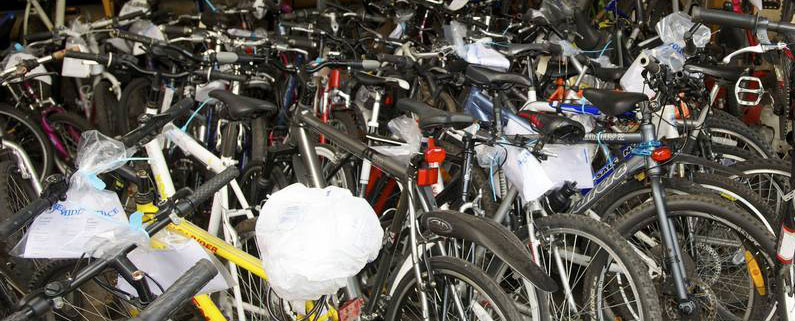 The Metropolitan Police force has been a huge target for our campaign to lobby police forces to release information about stolen bikes, simply due to almost 20% of. Finally after over 2 years of meetings and almost six months of back and forth around a single Freedom of Information, I’m happy to say that our request has been met and we have been provided with data relating to stolen bikes over the last five years (up to Sep 2014, when we made the original request). This puts the total searchable frame numbers from police data on Check That Bike! at 64,000 (24,000 from the met) which easily makes it the largest stolen bike database in the UK, especially when you look at the other services we work with who add to that pool of data. Over the next couple of days I will be issued FOI requests to bring all the below forces up to date, and for those forces not on this list because they refused on time limit grounds (no automated way to extract the data) we will be issued a request for a very small sample. Police Force Status Data Avon and Somerset Data Provided (Processed) Last Update: 06/10/2014 01/08/2008 to 01/10/2014 Total Imported Records: 1748 Bedfordshire Data Provided (Processed) Last Update: 27/11/2014 01/01/2009 to 31/10/2014 Total Imported Records: 438 British Transport Police *Estimate, general description field used to record frame numbers Data Provided (Processed) Last Update: 13/10/2014 18/09/2009 to 17/09/2014 Total Imported Records: 2623 Cambridgeshire Data Provided (Processed) Last Update: 08/10/2014 01/01/2009 to 01/10/2014 Total Imported Records: 3683 Cheshire Data Provided (Processed) Last Update: 27/11/2014 01/04/2011 to...
The Metropolitan Police force has been a huge target for our campaign to lobby police forces to release information about stolen bikes, simply due to almost 20% of. Finally after over 2 years of meetings and almost six months of back and forth around a single Freedom of Information, I’m happy to say that our request has been met and we have been provided with data relating to stolen bikes over the last five years (up to Sep 2014, when we made the original request). This puts the total searchable frame numbers from police data on Check That Bike! at 64,000 (24,000 from the met) which easily makes it the largest stolen bike database in the UK, especially when you look at the other services we work with who add to that pool of data. Over the next couple of days I will be issued FOI requests to bring all the below forces up to date, and for those forces not on this list because they refused on time limit grounds (no automated way to extract the data) we will be issued a request for a very small sample. Police Force Status Data Avon and Somerset Data Provided (Processed) Last Update: 06/10/2014 01/08/2008 to 01/10/2014 Total Imported Records: 1748 Bedfordshire Data Provided (Processed) Last Update: 27/11/2014 01/01/2009 to 31/10/2014 Total Imported Records: 438 British Transport Police *Estimate, general description field used to record frame numbers Data Provided (Processed) Last Update: 13/10/2014 18/09/2009 to 17/09/2014 Total Imported Records: 2623 Cambridgeshire Data Provided (Processed) Last Update: 08/10/2014 01/01/2009 to 01/10/2014 Total Imported Records: 3683 Cheshire Data Provided (Processed) Last Update: 27/11/2014 01/04/2011 to...
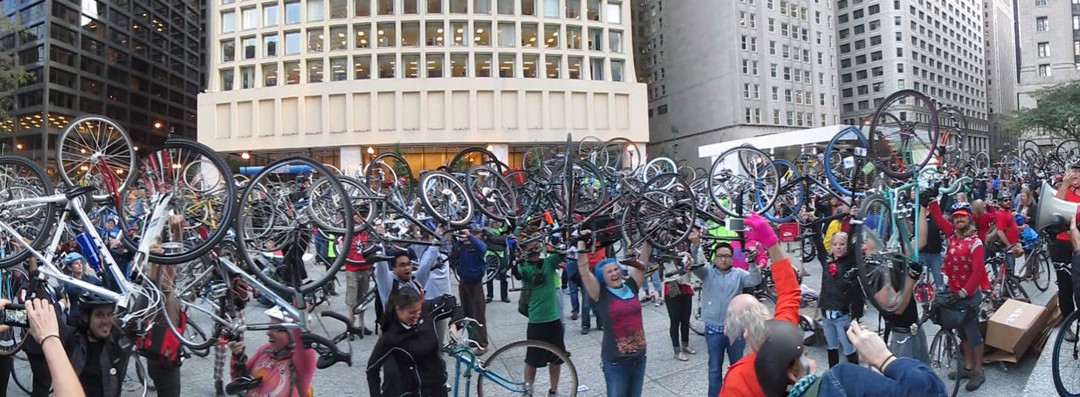 Fantastic you’ve found your bike for sale on one of the many online sites but what should you do now to maximize the chance of getting that bike back home. The Basics First things, first. Take some screenshots and notes, just encase the advert is taken down. You reported it to the police originally right? Phone them back using 101, provide your crime reference number and any details about the advert. When you speak to an officer you need to convince them the advert is your bike, if you can’t convince them of this then they won’t waste resources on it. Be aware that officers like anyone else work shifts so you might not get an instant response. Further steps Sometimes the police aren’t as helpful as they could be either they say they don’t have the time or they don’t even bother responding what so ever, if that happens we have a few tricks up our sleeves that you can think about.. Arrange to buy the bike, make sure it’s a very public place or an address. Once you have this contact the police again and see if they are more helpful… Still no luck? If your city based you can arrange to meet them at a tube/train station (with an open Transport Police station) attached. Around half an hour before your due to meet, go to the station and talk to the officers and see if they are willing to help. Failing that get in touch, john@stolen-bikes.co.uk Remember! Never, ever! go to meet a seller without the police. At the end of the day you are dealing with a...
Fantastic you’ve found your bike for sale on one of the many online sites but what should you do now to maximize the chance of getting that bike back home. The Basics First things, first. Take some screenshots and notes, just encase the advert is taken down. You reported it to the police originally right? Phone them back using 101, provide your crime reference number and any details about the advert. When you speak to an officer you need to convince them the advert is your bike, if you can’t convince them of this then they won’t waste resources on it. Be aware that officers like anyone else work shifts so you might not get an instant response. Further steps Sometimes the police aren’t as helpful as they could be either they say they don’t have the time or they don’t even bother responding what so ever, if that happens we have a few tricks up our sleeves that you can think about.. Arrange to buy the bike, make sure it’s a very public place or an address. Once you have this contact the police again and see if they are more helpful… Still no luck? If your city based you can arrange to meet them at a tube/train station (with an open Transport Police station) attached. Around half an hour before your due to meet, go to the station and talk to the officers and see if they are willing to help. Failing that get in touch, john@stolen-bikes.co.uk Remember! Never, ever! go to meet a seller without the police. At the end of the day you are dealing with a...
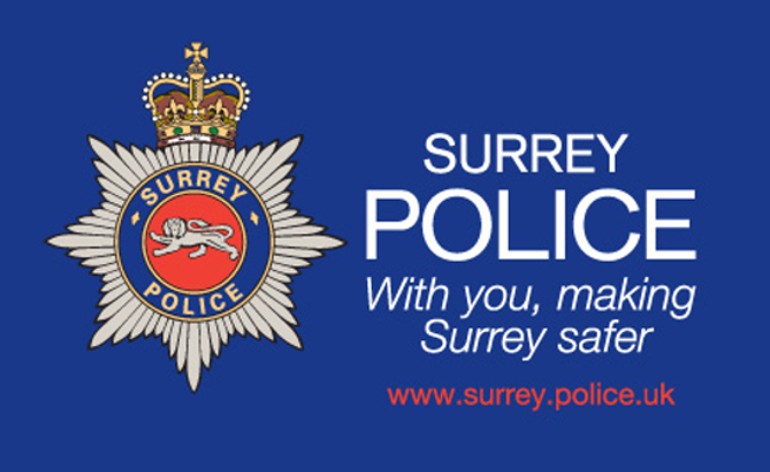 So on your average week I’ll be contacted by a few people who have been fortunate enough to have found their bike for sale but the police aren’t being as helpful as they could be. That’s business as usual for me and we have a few tricks up our sleeves to encourage the police to act but one case that occurred last week really stood out for me as a demonstration of why services like mine are needed and how big of a let down the police can be (once again their are fantastic officers in nearly every force but occasionally the system really lets victims of crime down). The text of our email exchange is below, some details have been removed to protect identities. Essentially Surrey Police failed to connect a found bike to a reported theft even though it was found less than 100 yards from the original crime scene and the owner provided a frame number. Email Dear John, I found a condor bike in a hedge a month ago. its worth thousands of pounds and the lock and tool kit were still intact, so it was obviously stolen I took the bike home for safe keeping and contacted surrey police who refused to collect it. I therefore made a found-property report and was told that the police would check their records and contact me if it was reported lost/stolen. Having heard nothing for a month, yesterday I went to condors in central London and attempted to trace the owner via the frame number. This was not possible, but they recommended your site. I looked at your...
So on your average week I’ll be contacted by a few people who have been fortunate enough to have found their bike for sale but the police aren’t being as helpful as they could be. That’s business as usual for me and we have a few tricks up our sleeves to encourage the police to act but one case that occurred last week really stood out for me as a demonstration of why services like mine are needed and how big of a let down the police can be (once again their are fantastic officers in nearly every force but occasionally the system really lets victims of crime down). The text of our email exchange is below, some details have been removed to protect identities. Essentially Surrey Police failed to connect a found bike to a reported theft even though it was found less than 100 yards from the original crime scene and the owner provided a frame number. Email Dear John, I found a condor bike in a hedge a month ago. its worth thousands of pounds and the lock and tool kit were still intact, so it was obviously stolen I took the bike home for safe keeping and contacted surrey police who refused to collect it. I therefore made a found-property report and was told that the police would check their records and contact me if it was reported lost/stolen. Having heard nothing for a month, yesterday I went to condors in central London and attempted to trace the owner via the frame number. This was not possible, but they recommended your site. I looked at your...
 It is estimated that more than 500,000 bicycles are stolen every year in England and Wales. It’s clearly a problem on a massive scale, which is why we developed our lightweight and secure bike lock, but who are these thieves and what happens to the stolen bikes? While there is little published data on bicycle thieves, a 2011 publication by Transport for London and the Metropolitan Police Service suggests that the average London offender is male,16- 25 years of age and operates in loose gangs. He trades stolen bicycles for cash or goods, and is willing to travel three or four miles to areas of high unattended bicycles. From their research of cycle theft offenders, 90 per cent have a history of criminal activity prior to arrest. Thieves then sell the stolen bikes at street markets and through online portals. It isn’t clear the proportion of stolen bikes sold on the street versus online, but the police in London are focused on disrupting both these resale points. What’s more, the police aren’t safe either. According to this Freedom of Information (FOI) request the Cambridgeshire Constabulary had seven or eight bicycles nicked in the 2012/2013 financial year. Thankfully, most of them were recovered. Why bicycle theft is so prevalent The Metropolitan Police Service believes cycle theft is attractive to offenders because it’s a low risk, high reward crime. Setup costs for thieves are low as tools aren’t expensive, and it doesn’t require much training or knowledge to steal a bike. Priceonomics, an organisation that helps companies with data, echoes these sentiments. In an article about stolen bikes in the United...
It is estimated that more than 500,000 bicycles are stolen every year in England and Wales. It’s clearly a problem on a massive scale, which is why we developed our lightweight and secure bike lock, but who are these thieves and what happens to the stolen bikes? While there is little published data on bicycle thieves, a 2011 publication by Transport for London and the Metropolitan Police Service suggests that the average London offender is male,16- 25 years of age and operates in loose gangs. He trades stolen bicycles for cash or goods, and is willing to travel three or four miles to areas of high unattended bicycles. From their research of cycle theft offenders, 90 per cent have a history of criminal activity prior to arrest. Thieves then sell the stolen bikes at street markets and through online portals. It isn’t clear the proportion of stolen bikes sold on the street versus online, but the police in London are focused on disrupting both these resale points. What’s more, the police aren’t safe either. According to this Freedom of Information (FOI) request the Cambridgeshire Constabulary had seven or eight bicycles nicked in the 2012/2013 financial year. Thankfully, most of them were recovered. Why bicycle theft is so prevalent The Metropolitan Police Service believes cycle theft is attractive to offenders because it’s a low risk, high reward crime. Setup costs for thieves are low as tools aren’t expensive, and it doesn’t require much training or knowledge to steal a bike. Priceonomics, an organisation that helps companies with data, echoes these sentiments. In an article about stolen bikes in the United...
 As many of you will be aware we have been campaigning for the last two years to get stolen bike data from the police into public hands, so services like our own Check That Bike! can check against police lists. To the surprise of no one I got nowhere with a softly softly approach so late last year we used the ace up our sleeves (FOI requests) and have now received data from 28 of the 43 police forces in the UK. This has given us the frame numbers of 40,000 stolen bikes, to put that in perspective the service currently recommended by the Police has 4,296 stolen bikes almost ten times less than we have gathered in the six months since we stopped treating the police with kid gloves. To keep with our promise to be open and transparent about these things below are the releases we have and we will be keeping this table updated on the Check That Bike! website as we go along. Police Force Status Data Avon and Somerset Data Provided (Processed) Last Update: 06/10/2014 01/08/2008 to 01/10/2014 Total Imported Records: 1748 Bedfordshire Data Provided (Processed) Last Update: 27/11/2014 01/01/2009 to 31/10/2014 Total Imported Records: 438 British Transport Police *Estimate, general description field used to record frame numbers Data Provided (Processed) Last Update: 13/10/2014 18/09/2009 to 17/09/2014 Total Imported Records: 2623 Cambridgeshire Data Provided (Processed) Last Update: 08/10/2014 01/01/2009 to 01/10/2014 Total Imported Records: 3683 Cheshire Data Provided (Processed) Last Update: 27/11/2014 01/04/2011 to 30/09/2014 Total Imported Records: 928 City of London Police Data Provided (Processed) Last Update: 14/10/2014 01/01/2009 to 31/12/2013 Total Imported Records: 140...
As many of you will be aware we have been campaigning for the last two years to get stolen bike data from the police into public hands, so services like our own Check That Bike! can check against police lists. To the surprise of no one I got nowhere with a softly softly approach so late last year we used the ace up our sleeves (FOI requests) and have now received data from 28 of the 43 police forces in the UK. This has given us the frame numbers of 40,000 stolen bikes, to put that in perspective the service currently recommended by the Police has 4,296 stolen bikes almost ten times less than we have gathered in the six months since we stopped treating the police with kid gloves. To keep with our promise to be open and transparent about these things below are the releases we have and we will be keeping this table updated on the Check That Bike! website as we go along. Police Force Status Data Avon and Somerset Data Provided (Processed) Last Update: 06/10/2014 01/08/2008 to 01/10/2014 Total Imported Records: 1748 Bedfordshire Data Provided (Processed) Last Update: 27/11/2014 01/01/2009 to 31/10/2014 Total Imported Records: 438 British Transport Police *Estimate, general description field used to record frame numbers Data Provided (Processed) Last Update: 13/10/2014 18/09/2009 to 17/09/2014 Total Imported Records: 2623 Cambridgeshire Data Provided (Processed) Last Update: 08/10/2014 01/01/2009 to 01/10/2014 Total Imported Records: 3683 Cheshire Data Provided (Processed) Last Update: 27/11/2014 01/04/2011 to 30/09/2014 Total Imported Records: 928 City of London Police Data Provided (Processed) Last Update: 14/10/2014 01/01/2009 to 31/12/2013 Total Imported Records: 140...
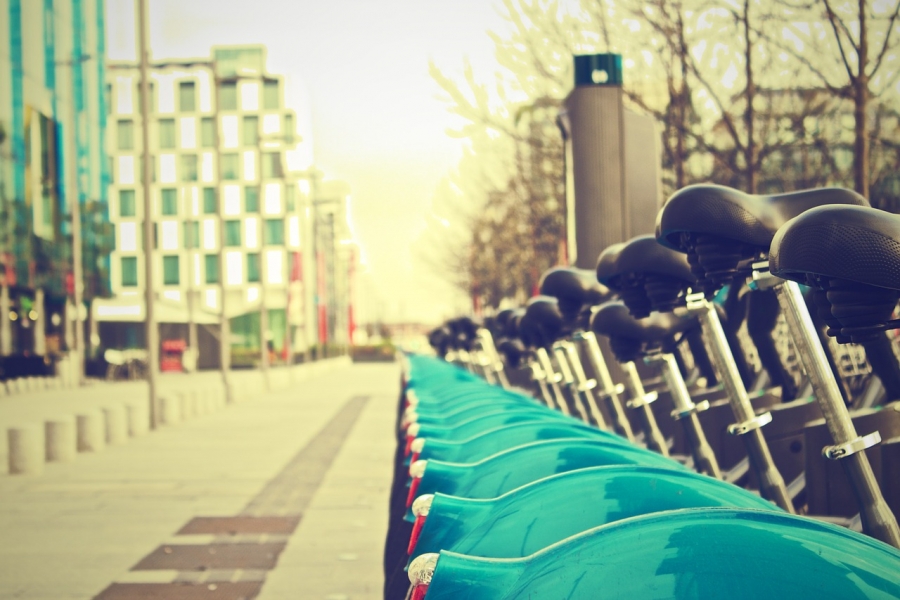 As I’m sure you are aware bike theft is a huge problem for cyclists throughout the country and often named as the second biggest reasons cyclists give up (behind Road Safety). In fact with 25% of victims giving up and a further 66% cycling less, 20,000 cyclists would have given up last year because of bike theft in the capital alone. Worse still is that because of the “safety in numbers” effect this is having a negative influence on cycling safety. I’m writing this today because I need your support, you see I’m currently campaigning for the police to openly release the frame numbers of stolen bicycles. This would give the public access to the information they need to avoid buying stolen goods and dramatically alter the dynamic that allows the trade in stolen bikes to thrive. To date 28 police forces have chosen to provide data relating to 40,000 frame numbers and together with property registers and insurers this data forms the country’s largest free to access stolen bike database by a large margin. This has led to over 2,000 suspected stolen bikes being identified through our Check That Bike! service in the first 12 months. Unfortunately despite our success and the fact that other police forces have provided data, the Metropolitan Police have disputed the public benefit to releasing the data and refused to provide the dataneeded by the service to operate effectively in London. It’s not over yet though, we have the option to appeal the decision with ICO and so we need cycling organisations to provide us with a letter of support that we can utilize to show public...
As I’m sure you are aware bike theft is a huge problem for cyclists throughout the country and often named as the second biggest reasons cyclists give up (behind Road Safety). In fact with 25% of victims giving up and a further 66% cycling less, 20,000 cyclists would have given up last year because of bike theft in the capital alone. Worse still is that because of the “safety in numbers” effect this is having a negative influence on cycling safety. I’m writing this today because I need your support, you see I’m currently campaigning for the police to openly release the frame numbers of stolen bicycles. This would give the public access to the information they need to avoid buying stolen goods and dramatically alter the dynamic that allows the trade in stolen bikes to thrive. To date 28 police forces have chosen to provide data relating to 40,000 frame numbers and together with property registers and insurers this data forms the country’s largest free to access stolen bike database by a large margin. This has led to over 2,000 suspected stolen bikes being identified through our Check That Bike! service in the first 12 months. Unfortunately despite our success and the fact that other police forces have provided data, the Metropolitan Police have disputed the public benefit to releasing the data and refused to provide the dataneeded by the service to operate effectively in London. It’s not over yet though, we have the option to appeal the decision with ICO and so we need cycling organisations to provide us with a letter of support that we can utilize to show public...
 So STW has recently published a snapshot of data from the insurer ProtectYourBubble, as some of the statistics present an entirely different picture to what official statistics actually say I thought it would be interesting to look at how insurance figures can actually differ from the “real” picture and update our statistics page whilst I’m at it. Most popular brand of bike stolen I don’t think these statistics are particularly interesting as they don’t account for a brands relative popularity (i.e there are more Specialized bikes out there, so of course more get stolen) but none the less I ran the Metropolitan Police figures against Protect Your Bubble’s and found that indeed Specialized is the number 1 brand in the UK (for both buying a bike and stealing one). Source: Metropolitan Police Data for Make/Model of Stolen Bikes (via FOI) What is interesting though is that a whopping 27% of people couldn’t identify the brand of their stolen bike to the police (or it wasn’t recorded). Average value of a stolen bike Protect Your Bubble say that “The average cost of a stolen bike was £974.80“, whilst the Home Office reduces that figure down to £337. Source: Crime in England and Wales Survey, 2013/14 I’d put the difference down to people being more likely to insurer their £1,000 bike. Type of locations bikes are stolen Protect Your Bubble say “Of those who claimed for a stolen bicycle, 72% had it stolen from a location other than their home, while 23% had their bicycle stolen from their home.” (not sure what happened to the other 5%). The Home Office statistics are almost reversed with 68% of bikes...
So STW has recently published a snapshot of data from the insurer ProtectYourBubble, as some of the statistics present an entirely different picture to what official statistics actually say I thought it would be interesting to look at how insurance figures can actually differ from the “real” picture and update our statistics page whilst I’m at it. Most popular brand of bike stolen I don’t think these statistics are particularly interesting as they don’t account for a brands relative popularity (i.e there are more Specialized bikes out there, so of course more get stolen) but none the less I ran the Metropolitan Police figures against Protect Your Bubble’s and found that indeed Specialized is the number 1 brand in the UK (for both buying a bike and stealing one). Source: Metropolitan Police Data for Make/Model of Stolen Bikes (via FOI) What is interesting though is that a whopping 27% of people couldn’t identify the brand of their stolen bike to the police (or it wasn’t recorded). Average value of a stolen bike Protect Your Bubble say that “The average cost of a stolen bike was £974.80“, whilst the Home Office reduces that figure down to £337. Source: Crime in England and Wales Survey, 2013/14 I’d put the difference down to people being more likely to insurer their £1,000 bike. Type of locations bikes are stolen Protect Your Bubble say “Of those who claimed for a stolen bicycle, 72% had it stolen from a location other than their home, while 23% had their bicycle stolen from their home.” (not sure what happened to the other 5%). The Home Office statistics are almost reversed with 68% of bikes...
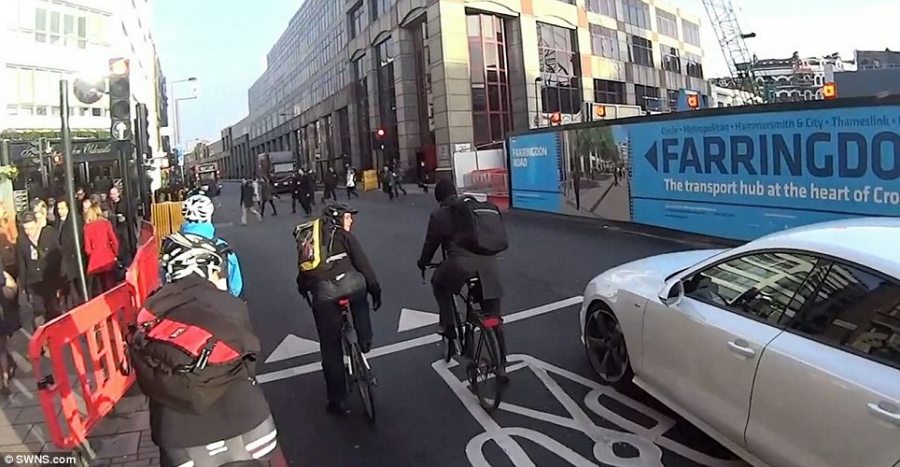 In Leicester we’ve been lucky enough for the last two years to have a mayor in power with the stomach to install some cycling infrastructure (even if that infrastructure is a bit of a wet fish), unfortunately this has lead to the usual rants from various drivers about how they are being hard done by the “free loading cyclist”. So fed up of constantly explaining why various bits of their arguments are complete bollocks, I’ve decided to simply link them directly to the counter points. You Said: I pay road tax, cyclists are freeloaders Okay first of all it’s not road tax it’s Vehicle Excise Duty (VED) but let’s ignore that little argumentative col de sac. You pay VED not for the right to use the road but the right to use a car that emits pollution above what the government has decided is a reasonable level, there are plenty of cars you can buy the emit minimal amounts of pollution and so don’t pay any VED. As a cyclist emits no pollution, they pay no VED. You Said: All cyclists are law breakers Whilst I will concede that a section of cyclists do seem to ride on the pavements or jump red lights, car drivers are hardly coming at this with clean hands often speeding or parking on the pavements. Let’s not forget the relative danger a car represents when compared to a bike. In addition there are law breakers in every group of society it shouldn’t be used to dictate investment otherwise our motorway network would be non existent. You Said: I saw a cyclist he wasn't wearing a helmet/highviz Nor do...
In Leicester we’ve been lucky enough for the last two years to have a mayor in power with the stomach to install some cycling infrastructure (even if that infrastructure is a bit of a wet fish), unfortunately this has lead to the usual rants from various drivers about how they are being hard done by the “free loading cyclist”. So fed up of constantly explaining why various bits of their arguments are complete bollocks, I’ve decided to simply link them directly to the counter points. You Said: I pay road tax, cyclists are freeloaders Okay first of all it’s not road tax it’s Vehicle Excise Duty (VED) but let’s ignore that little argumentative col de sac. You pay VED not for the right to use the road but the right to use a car that emits pollution above what the government has decided is a reasonable level, there are plenty of cars you can buy the emit minimal amounts of pollution and so don’t pay any VED. As a cyclist emits no pollution, they pay no VED. You Said: All cyclists are law breakers Whilst I will concede that a section of cyclists do seem to ride on the pavements or jump red lights, car drivers are hardly coming at this with clean hands often speeding or parking on the pavements. Let’s not forget the relative danger a car represents when compared to a bike. In addition there are law breakers in every group of society it shouldn’t be used to dictate investment otherwise our motorway network would be non existent. You Said: I saw a cyclist he wasn't wearing a helmet/highviz Nor do...













